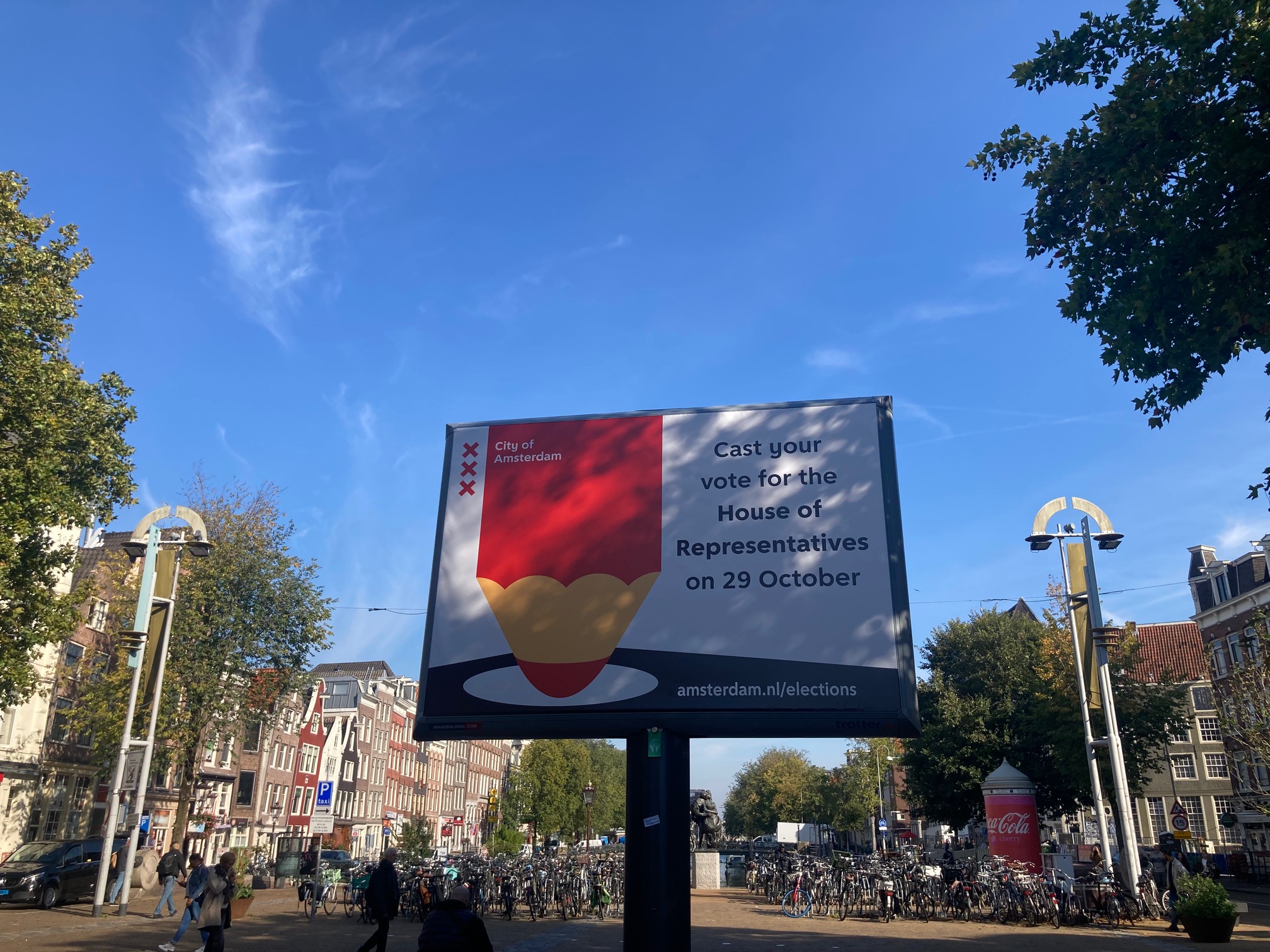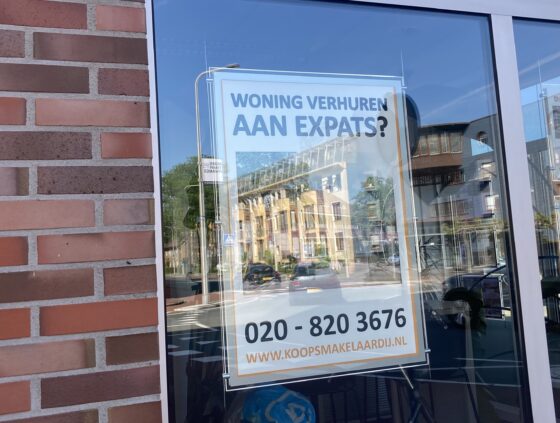“Every voice should be heard”: internationals take on critics
Senay Boztas
Some think “expats” refuse to integrate – others believe the Netherlands has broken its promise of a multicultural society that attracted global businesses, international students and hard-working foreigners.
This was one point of view at a “meet your deputy mayor” evening in Amsterdam organised by the local Liberal Democratic party D66 on Thursday.
“That language of integration is not the language of an open society,” said one woman from New Zealand. “We talk about multiculturalism: there’s no expectation that someone comes from somewhere and integrates into the dominant culture. You change the language, you change the conversation.”
Organised by D66 councillor Erik Schmidt, the event aimed to throw open the floor to international residents who sometimes feel ignored in the national debate.
“We believe in a city where internationals can also feel free…but in debates in the city council, sometimes I have to [ask people] not to scapegoat the internationals,” said Schmidt. “I don’t think house prices going up and social cohesion going down is due to you. The facts are, we discovered, you are doing more voluntary work than the average local person. But internationals are not well represented in our democratic system.”
So, in the run up to local elections in March 2026 – where EU citizens and internationals resident for five years can vote – local parties are organising more events to appeal to a valuable group of voters.
The timing of the D66 event in Amsterdam is particularly relevant since earlier this year, the local Labour party (PvdA) led a plan to make international companies pay for courses for foreign workers in “becoming an Amsterdammer”, including language and culture lessons. Critics said it ignored the challenges of penetrating a relatively closed society and risked damaging the city’s future economy.
Urgency
Deputy mayor and transport chief Melanie van der Horst told the meeting Amsterdam needs to buck the global trend for insularity. “It’s urgent what is at stake in the Netherlands – and all over the world,” she said. “It’s not going in the right direction. So if we want to turn this around, every voice should be heard.”
Pedro Morgado, 49, from Portugal, said while he had passed Dutch language exams, he felt like a global citizen. “There is this negativity around internationals,” he said. “We become the invaders because there is this sense that internationals can pay a lot more than the locals for a house…But being a non-fluent Dutch speaker makes me a more global citizen.”
Language
Many pointed out the difficulties of learning the language, especially those recruited for full-time jobs with no access to free city language courses and limited free time. Marjan, from Belgium, said Dutch people might believe it is more efficient to switch to English, but if they want foreigners to learn the language, they need to speak it with them. “It’s hard to practise Dutch in Amsterdam because everybody speaks English and doesn’t have the patience often to really [slow down],” she said.
Anastasia, 35, from Russia, praised language cafes offering a free chance to improve conversational Dutch, but said the council could do more to promote them on social media. For her, the biggest concern was a government bill to increase the term for applying for Dutch citizenship to 10 years, rather than five. “A large part of the international community is very concerned about that,” she said.
D66 housing spokesman Suleyman Aslami pointed out that some of these issues were also raised by labour migrants who were invited to the country in the 1960s and 1970s to fill positions for manual labour.
- The Dutch general election: how would you vote if you could
- Inburgering with Dutch News: the 15 biggest political parties
“Yesterday I was in Nieuw-West with first-generation migrants from Turkey and Morocco,” he said. “They said: ‘We came here for a promise, we pay taxes, we work, and now we’re at an age that we require housing, health, attention, no one is listening to us.’
“You actually are saying the same thing. In the Netherlands, it’s called the integration paradox: the more you integrate, the more you learn [how much needs] to be done.”
False advertising
Sofya Sacks, 33, a dual Russian and American citizen, pointed out internationals pay the high rates of Dutch tax – most of them without a tax break – and typically cannot vote in national elections. “I think as an international, you have a lot of responsibilities but not a lot of rights,” she said.

For new immigrants in particular, the Netherlands should present itself more honestly abroad, added one international, rather than advertising for top scientists or competing for the European Medicines Agency and then complaining about housing its staff.
“People [coming here] need to be reminded: you’re choosing to move to the Netherlands where the language is Dutch,” she said. “By promoting that you can do everything in English in the Netherlands, the Dutch are setting themselves up for people who are not going to learn the language.”
But, she added, if Amsterdam wants to benefit from the skills and economic contributions of foreign workers, locals need to put in some effort too. “On the other side, there needs to be more awareness among Dutch people that it’s great that everyone speaks English, we’re very impressed, we’re very grateful, but it’s not helping people integrate…
“If someone comes to you and starts a conversation in Dutch, actually maybe just speak slower and encourage them to have that conversation in Dutch because that’s their opportunity to get better.”
Thank you for donating to DutchNews.nl.
We could not provide the Dutch News service, and keep it free of charge, without the generous support of our readers. Your donations allow us to report on issues you tell us matter, and provide you with a summary of the most important Dutch news each day.
Make a donation